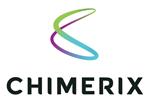Chimerix Announces Publication of Positive ONC201 Data from Phase 2 Study in Neuroendocrine Tumors in Clinical Cancer Research
ONC201 is an orally administered small molecule dopamine receptor D2 (DRD2) antagonist and caseinolytic protease (ClpP) agonist.
“Given ONC201’s demonstrated biological activity with DRD2, we took a deliberate approach to explore its potential utility in neuroendocrine tumors,” said
“Patients with metastatic neuroendocrine cancers are in need of more effective and well-tolerated treatment options. This efficacy and safety data supports further investigation of ONC201’s activity beyond recurrent H3 K27M-mutant diffuse midline glioma,” said
This open-label Phase 2 investigator-initiated study treated 30 patients with rare neuroendocrine tumors. Paraganglioma patients were separated in to two separate cohorts of the study receiving ONC201 either once or twice weekly. A third cohort included patients with other neuroendocrine tumors, including desmoplastic small round cell tumor (DSRCT), dosed weekly with ONC201. The primary endpoint was radiographic response as measured by RECIST criteria.
In the cohort of paraganglioma patients receiving ONC201 once weekly, 50% (5/10) of patients exhibited a partial response (PR) and two additional patients had stable disease (SD) that lasted longer than three months. Five of the 10 patients in this cohort were treated longer than one year. Among the cohort of paraganglioma patients receiving ONC201 twice weekly one PR and seven SD were observed; this cohort includes four of eight patients who crossed over from the weekly dosing cohort. The third cohort of other neuroendocrine tumors included one PR (DSRCT) and two SD (DSRCT; neuroblastoma) that lasted longer than three months. Importantly, across all cohorts there was no decline in Karnofsky Performance Status (KPS) at week 12 for 93% of patients (28/30) and no dose modification due to treatment-related adverse events.
About Chimerix
Forward-Looking Statements
This press release contains forward-looking statements within the meaning of the Private Securities Litigation Reform Act of 1995 that are subject to risks and uncertainties that could cause actual results to differ materially from those projected. Forward-looking statements include those relating to, among other things, the status of Chimerix’s oncology programs, and the ability to pursue additional indications of ONC201 outside of recurrent H3 K27M-mutant diffuse midline glioma. Among the factors and risks that could cause actual results to differ materially from those indicated in the forward-looking statements are risks that the current clinical study data for ONC201 will not support accelerated, or any, regulatory approval; the anticipated benefits of the acquisition of Oncoceutics may not be realized; the ability to generate positive results in a Phase 3 study in acute myeloid leukemia and subsequent approval for DSTAT; risks that Chimerix will not obtain a procurement contract for TEMBEXA in smallpox in a timely manner or at all; Chimerix’s reliance on a sole source third-party manufacturer for drug supply; risks that ongoing or future trials may not be successful or replicate previous trial results, or may not be predictive of real-world results or of results in subsequent trials; risks and uncertainties relating to competitive products and technological changes that may limit demand for our drugs; risks that our drugs may be precluded from commercialization by the proprietary rights of third parties; and additional risks set forth in the Company's filings with the Securities and Exchange Commission. These forward-looking statements represent the Company's judgment as of the date of this release. The Company disclaims, however, any intent or obligation to update these forward-looking statements.
CONTACT:
Investor Relations:
919-972-7115
ir@chimerix.com
Will O’Connor
Stern Investor Relations
212-362-1200
will@sternir.com

Source: Chimerix, Inc.



